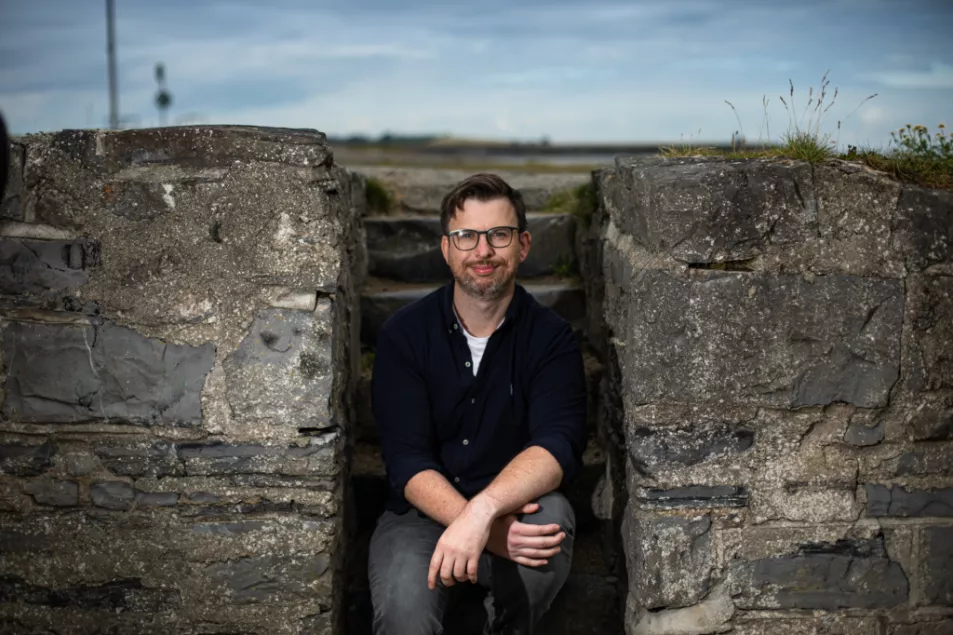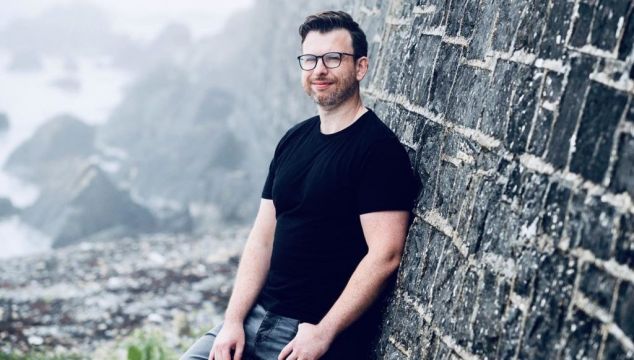Men are often reluctant to speak out and seek help for mental health issues, and Dubliner Keith Russell was no different.
However, after battling with his body dysmorphia, depression and anxiety for over 20 years, he decided it was time to stop suffering in silence.
He started with a personal blog that took off, with others sharing their experiences, both named and anonymous, and this gave Mr Russell the idea to start a podcast last year, named The Endless Spiral.
His guests come from all walks of life, and talk about their struggles with various issues.
Mr Russell (41) has come a long way and after finding sharing his own story therapeutic, he is determined to help others and reduce the stigma around talking about mental health issues.
He told BreakingNews.ie that the main message he wants to normalise is that anybody can suffer from mental health issues, no matter what their background, circumstances or outer behaviour may suggest.
"It's not always about my story but around different topics on mental health. I'm not trying to promote myself, I want to promote mental health awareness, if people want to talk about my story that's fine, but it doesn't matter what age, gender you are, everyone can have mental health issues, so I try to keep the topics general."

Body dysmorphia involves a focus on one or more perceived defects or flaws in physical appearance that are not observable or appear minimal to others. It consists of a preoccupation that causes significant distress that disrupts social and occupational functioning.
Like other eating disorders, people often presume it does not affect men.
Mr Russell feels this is a big problem in society. It was a big factor in his decision to speak out, and his core message is that anybody can suffer with mental health issues.
"One of the main points I try to get across is the stereotypical image of an eating disorder, a woman who is maybe very frail or very thin. People don't think of men, especially men who don't necessarily look like they have an eating disorder.
“That was a big thing for me, because I didn't look like I had a problem I never got asked about anything, so it was easy for me to sweep everything under the rug. It's important to say people who have a problem don't always look like they do. Body dysmorphia led me to binge, then want to purge that all up, and the cycle would go on and on. That's been important to me to raise awareness for men.
"You never know what's going on in somebody's head and I masked it for a long time. When I first shared my story, the amount of messages I got from people, even friends, saying 'God Keith, I never knew'.
"Because I didn't look like I had an issue, it was very easy to hide it. I was self-stigmatising, saying 'you're 40, people will be saying you don't look like you have a problem, why haven't you dealt with this?'
"All those things went through my head but when I opened up and started telling my story the support I got was incredible. I thought 'if only I'd opened up sooner'."
He added: "I stayed silent for 20 years but when I spoke out and realised there was help out there, everything changed. I'm still learning now, I'm far form perfect and never will be, but I'm trying to improve and go in the right direction and that's all I'm asking of myself now."
Mr Russell has even started a second mental health podcast, with a friend called Chris Sherlock.
Mr Sherlock also speaks out on mental health issues, after horrendous bullying at school had a lasting impact on his life.
The Galway native, who previously shared his story with BreakingNews.ie, is now recording a second serious of The Waffle Box with Mr Russell.
"We're different ages, and we have different backgrounds, he's an anti-bullying campaigner and that's where his mental health struggles started.
"We're trying to show people it doesn't matter what your background is, or your circumstances, anyone can struggle with mental health. We take a more casual approach to it to try and open up the conversation."
Mr Russell explained that part of his journey has been learning coping mechanisms to deal with times when he is feeling overwhelmed.
He said this was the reason for a recent break he took from podcasting, although he is now doing better and looking forward to welcoming more guests on The Endless Spiral.
His most recent interview was with Ken Kilbride, the chief executive of ADHD Ireland.
When asked what episodes he'd recommend a new listener to start with, he chose this one and an episode with writer Stefanie Preissner.
She spoke about her recent autism diagnosis.
"Stephanie Pressnier was on talking about her autism diagnosis... that was mind-blowing. She's so articulate, the way she explains things.
"The amount of people that don't get diagnosed is staggering. It's so expensive for an assessment, and there's no public pathway for adults to get assessed, it's difficult.
"Those two episodes were very worrying, but also fascinating."
This leads on to another reason he feels it is important for people to speak out about their mental health, the lack of services available in Ireland.

While things are always improving with people's understanding and compassion towards mental health issues, he thinks mental health services in Ireland "are all in need of massive improvement".
"The eating disorders' system in Ireland is an absolute disgrace, most of the services are in Dublin, there are only two or three beds at that. What do you do?
"Mary Butler [Minister for Mental Health] was talking about trying to improve all these things, but as she said it's just a lack of funds.
"All mental health services in Ireland need to be improved. I applied for CBT therapy, I was told the wait would be nine months, I applied for a nutritionist, I was told it could be 18 months, what do you do in the meantime?"
Mr Russell does his podcast alongside a full time job, while he is the father of three young children.
While they are too young to understand, he feels dealing with his mental health challenges has helped him as a parent.
"I tried to keep it separate at the beginning because I hadn't fully understood it myself, but they're six, eight and 10. I haven't explained what I do, but I have been able to be aware of what to say and not to say. Also, to pick up on certain things, when they're feeling overwhelmed or anxious, so I hope it's made me a better parent.
"I've more empathy now. Before I'd be so riddled with anxiety myself, but now I've got out of my own head, and it allows me to be more understanding of their needs."
He feels mental health awareness has improved in schools, but one area he'd like to see more put into is awareness of social media.
"In fairness, kids are now learning mindfulness in a lot of primary schools, including my kids' school.
"I think schools should have social media training. YouTube and TikTok, I know myself with kids when you try to stop them it doesn't even work, social media awareness even for children is important. The pitfalls, taking a step back to realise what it is. I think a lot of problems are worsened by social media.
"Someone to come in and teach kids about it would be great."
Since setting out on his journey, Mr Russell has gone on to appear on Morning Ireland, do a live episode of his podcast on stage at UCD, and take part in different events with mental health charity A Lust For Life.
𝗙𝗨𝗟𝗟 𝗩𝗜𝗗𝗘𝗢 𝗜𝗡𝗧𝗘𝗥𝗩𝗜𝗘𝗪 🎥🎥🎥
If you’d like to watch my interview on @IrelandAMVMTV yesterday chatting about me and @TheEndSpiral I’ve broken up the video into 2 minute segments below. 😊 #mentalhealth pic.twitter.com/WovsuNHOpb— Keith Russell (@Keith_Russell) September 9, 2021
He said this would all have been out of his comfort zone just a year ago, but he insists his story is just "one of thousands waiting to be told".
"It's good for as many people as possible to talk about mental health, even normal people like me. I think it's regular people having conversations is more and more important because it resonates with people.
"Most of the topics aren't personal to me but the fact it can help people listening is the point, if one person listens and gets something from the podcast I'm happy.
"There are quite a few listeners now but that's not as important to me, it's just to get the message out there. The podcast is about bringing people on to share their story, and I also get mental health experts on to share information.
"I've learnt now to take a step back when I'm not feeling right, I don't want to just go and knock out a few episodes I want to give every episode my full attention so if I'm feeling drained I'll take a step back and take a break.
"When I'm more engaged in the episode it comes across better, it's a labour of love."
If you have been affected by any of the issues raised in this article, you can freephone the Samaritans 24 hours a day for confidential support at 116 123 or email jo@samaritans.org.
Alternatively, the contact information for a range of mental health supports is available at mentalhealthireland.ie/get-support.
In the case of an emergency, or if you or someone you know is at risk of suicide or self-harm, dial 999/112.







